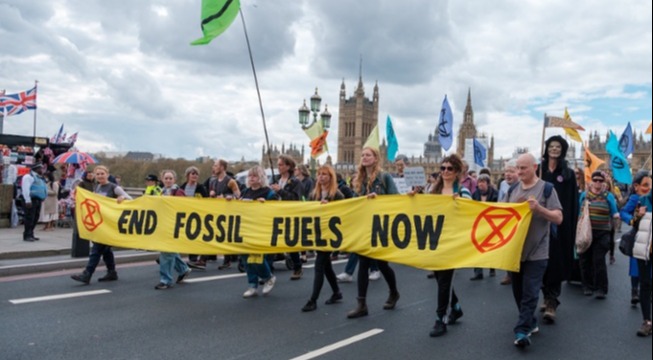Race and Class Privilege in the Environmental Movement

Inspired by Peggy McIntosh’s iconic article “White Privilege: Unpacking the Invisible Knapsack,” social justice educator Gregory Mengel shared his analysis and a companion list of ways class and race privilege are expressed in the environmental movement.
We invite you to embrace Gregory’s offering as a tool for making important connections between environmental sustainability and social justice and continuing to examine our individual and collective assumptions.
Race and Class: Unexamined Assumptions
Is environmentalism a White, middle-class phenomenon? Many of us may have heard (or leveled) that charge, and, unfortunately, with the exception of the environmental justice movement, it seems largely to be the case.
Yet we are living at a time when we really must engage all members of the human family in large-scale transformation.
A First Step to Engage the Entire Human Family
I think a good way to start would be by exploring how the agenda and worldview of the ecology movement is shaped by unacknowledged race and class privilege, such that it has simply not been able to make itself relevant to people of color and low income White people.
In the spirit of this exploration and with apologies to Peggy McIntosh, I have assembled a partial and provisional list of unearned privileges that seem to be taken for granted in the culture of White, middle-class environmentalism.
This list is particularly pertinent to the Northern California brand of environmentalists, whom I call “eco-spirituals,” and among whom I count myself.
As it turns out, race and class privilege constitute an inexhaustible wellspring of unconscious, unexamined assumptions.
Privilege and Cognitive Dissonance
The reason privilege is such a potent source of unquestioned beliefs is that it is itself quite stealthy, at least to those who possess it, while it is almost always blatantly obvious to everyone else.
This is the result of a psychological process called cognitive dissonance, whereby the brain essentially rewires itself so as to not perceive aspects of the world that present painful contradictions or challenge one's sense of identity.
In the context of privilege, this means that we structure our experience of the world so that our social advantages seem natural and/or deserved.
Rationalizing “Normal”
Another result is that those who are clearly struggling may be seen as somehow different or deficient. A useful example of this sort of rationalization—for which I credit Reverend Deborah Johnson—is physical ability.
Physical access is obviously far easier for those of us who possess a full range of physical abilities. After all, who among us thinks about our physical ability as an unearned privilege?
Yet that is exactly what it is. Our built environments have overwhelmingly been constructed by able-bodied people, for able-bodied people. That we have mostly missed this fact, of course, does not by itself make us bad people. It just makes us human.
Social Consequences of Unacknowledged Privilege
Similar to ability privilege, race and class privilege are unearned and they are built into the structures and institutions of our society.
Moreover, thanks to cognitive dissonance, those of us possessing privilege experience a reality radically different from those who do not.
The social consequences of this disconnect are enormous, and include the makeup of the ecology movement and the particular race and class-based perspective that shapes its agenda.
Environmentalism’s Romantic Bias
One example of the race/class perspective of environmentalism is its traditional concern for preservation.
Going back at least to John Muir, advocates of environmental protection have been motivated largely by their veneration for the wild, especially for the beauty of so-called untouched wilderness and for the majesty of large charismatic mammals.
Even appeals to scientifically legitimate concerns such as biodiversity and ecosystem integrity often tap into these deeper emotional currents, which are rooted in a Romantic or aesthetic attitude, and which are more typical of city dwellers who conceive their relationship to the natural world in terms of leisure outdoor activities.
People who depend directly on nature for their livelihood, as well as those trapped in inner-city settings lacking access to wild spaces, are understandably unmoved by the Romantic appeals of traditional preservationism.
The Problem with “Green” Consumption
So-called “green consumption,” as a response to ecological concerns, is similarly bound up with race and class privilege.
There is certainly no question that those with resources ought to make ecologically responsible consumer choices. The problem is with casting what amounts to luxury consumption in moral terms.
Unfortunately, certain forms of consumption, such as buying local, driving a hybrid, or even voluntary simplicity, are often conferred moral weight, despite the fact that the ability to make such choices relies on the systemic unearned privileges that go with being White and middle-class in the U.S.
Where Do You See Privilege in the Environmental Movement?
I’ve delved into a couple of examples of how race and class privilege play out in the environmental movement above, but there are many more, including the following, which are excerpted from a longer list of examples.
I encourage you to review the list, and to ask “Is this true for me? What other ways does privilege play out in the environmental movement?”
- I can, if I wish, purchase fresh local produce at my neighborhood farmer’s market.
- Because I have had access to an abundance of consumer products all my life, I am able to derive both material and moral satisfaction from choosing a simplicity-based lifestyle.
- I can take a nap in a public park without it being assumed that I might be homeless.
- My sense of intimacy with the land does not entail spending all day in the hot sun picking produce or tending someone else’s lawn.
- I can enjoy National Parks like Yosemite and Yellowstone, imagining them as intact wildernesses because their establishment did not involve the forcible removal of my ancestors.
